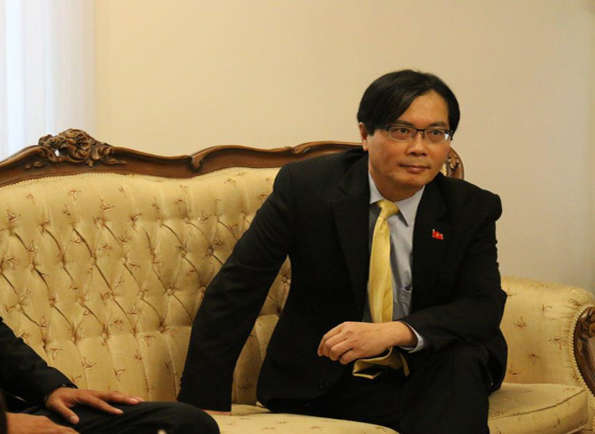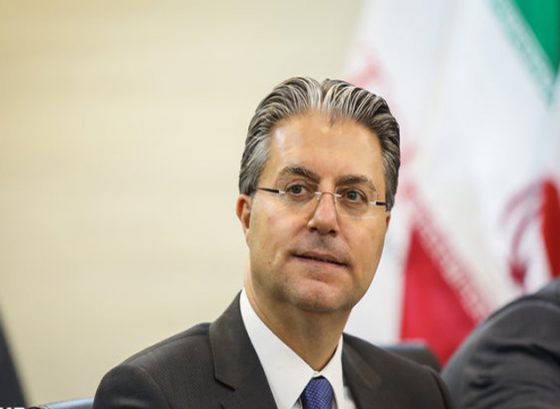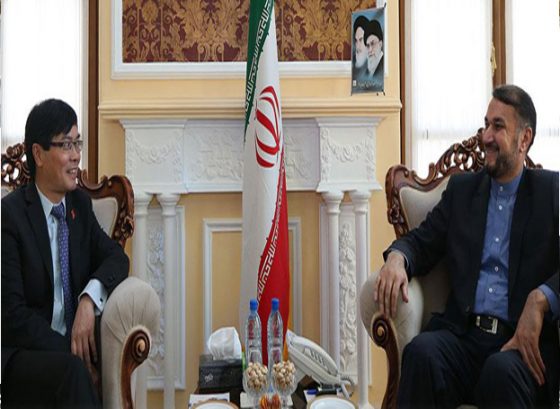Sovereignty and territorial integrity is sacred for every nation

Annually, Vietnam marks its National Day on September 2nd. On the occasion, the Tehran Times has held an interview with Vietnamese ambassador to Iran Nguyen Hong Thach, asking a number of questions on internal and external issues, including relations between Iran and Vietnam, AVA Diplomatic reports.
Each year on September 2, Vietnam celebrates its National Day. Why is it marked?
71 year ago, on September 2, 1945, our beloved President Ho Chi Minh read the Declaration of Independence, announcing the birth of the Democratic Republic of Vietnam. It is an event of great significance to our nation, marking the victory of our nearly-one-hundred-year struggle against the colonialism, opening a new era for Vietnam, an era of independence and freedom. Every year, we celebrate our Independence ‘Nou Ruz’ in order to honor generations of Vietnamese who sacrificed their lives for the nation’s independence and freedom as well as to remind each Vietnamese of his/her responsibility to do utmost for the prosperity of the country. This year, the event’s celebration is more significant as it’s time for us to review achievements of the 30-year implementation of the “Doi Moi” or renovation policy.
Now after 71 years from the Independence Day, how is Vietnam different from its past?
This year, we commemorate 30 years of Doi Moi, a comprehensive socio-economic renovation policy started in 1986. During the period, we attained great achievements. Vietnam has emerged from socio-economic crisis, transforming from a less developed country into a middle-income developing country, speeding up the process of industrialization, modernization and international integration. Our economy has developed with high economic growth rate for the last 30 years. Today Vietnam enjoys the socio-political stability, enhanced security and national defense, and higher living standards. Vietnam has expanded and deepened its external relations, enhancing its prestige and position in the international arena.
What is your assessment of current relations between Vietnam and Iran?
I am delighted that the relationship between Vietnam and Iran for the last 43 years has been unceasingly increasing. Our two countries have always supported each other on international forums, and exchanged many delegations. Especially, last March President Truong Tan Sang paid a state visit to Iran. Leaders of both countries showed determination to promote the bilateral co-operation to a higher level for the mutual benefits of the two nations. The target of $2 billion in bilateral trade set by our leaders is not unreachable if we really endeavor. The joint trade promotion working group met in early last June, and discussed concrete measures to boost trade and investment cooperation. We are also glad to witness in recent years an increase in delegation exchanges, economic, cultural and tourism co-operation. However, much potential in the fields of economic and trade relations has not been exploited yet. It must be emphasized that the Joint Comprehensive Plan of Action (JCPOA) reached between Iran and the P5+1 countries, created new momentum for our two countries’ cooperation. Sanctions have been removed, paving the way for the cooperative relations between Vietnam and Iran to take a leap in the near future.
How do you see Vietnam’s international engagement in the future?
Since early 1990s, Vietnam has launched a foreign policy under the slogan “Vietnam wants to be friend with all countries in the international community, striving for peace, independence and development.” Since then Vietnam has normalized relations with all its old foes, and established diplomatic relations with almost all big and small countries in the world. We maintain comprehensive, strategic and co-operative partnership with all five permanent members of the United Nation Security Council. Vietnam has taken part in different international and regional forums and organizations and being their active and responsible member. We also participate in many regional and international economic organizations. Therefore, international integration now becomes the new motto of the Vietnam Diplomacy at international and regional level.
What are some main challenges you are and will be grappling with in the future?
Despite great achievements during the last 30 years of renovation, Vietnam is still facing many challenges in both internal and external affairs. Internally, we have to solve the issue of sustainable growth, green development and to ensure economic growth bring about social equality and protected environment. We have to control economic vulnerability against the world economy fluctuations, while taking advantage of the international integration.
Externally, though the extensive international integration is enabling us to develop faster, we have to deal, at the same time, with common global challenges of such as insecurity, terrorism, disparity between the rich and the poor, environment etc.
Especially, we are facing challenges to protection of sovereignty over our some islands. The Hoang Sa (Paracels) archipelago and some islands/rocks of our Truong Sa (Spratlys) archipelago, over which generations of Vietnamese have exercised the sovereignty, and administered in practice, were forcefully taken by the Chinese in the years of 1956, 1974 and 1988. We are resolved to use all peaceful means to take back these islands. Protecting sovereignty and territorial integrity is always sacred to every nation. Vietnam is not an exception.
Recently, the Permanent Court of Arbitration in La Hague ruled that the nine-dotted line claimed by the Chinese their ‘historical water’ is invalid. This ruling is of great importance for the security in the South China Sea (East Sea in Vietnamese). Vietnam welcomes the ruling and calls on other sides to respect this objective and just ruling made by the PCA in order to maintain peace, security and stability in the region.




